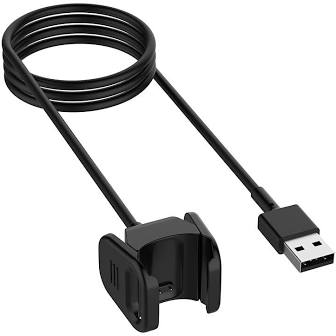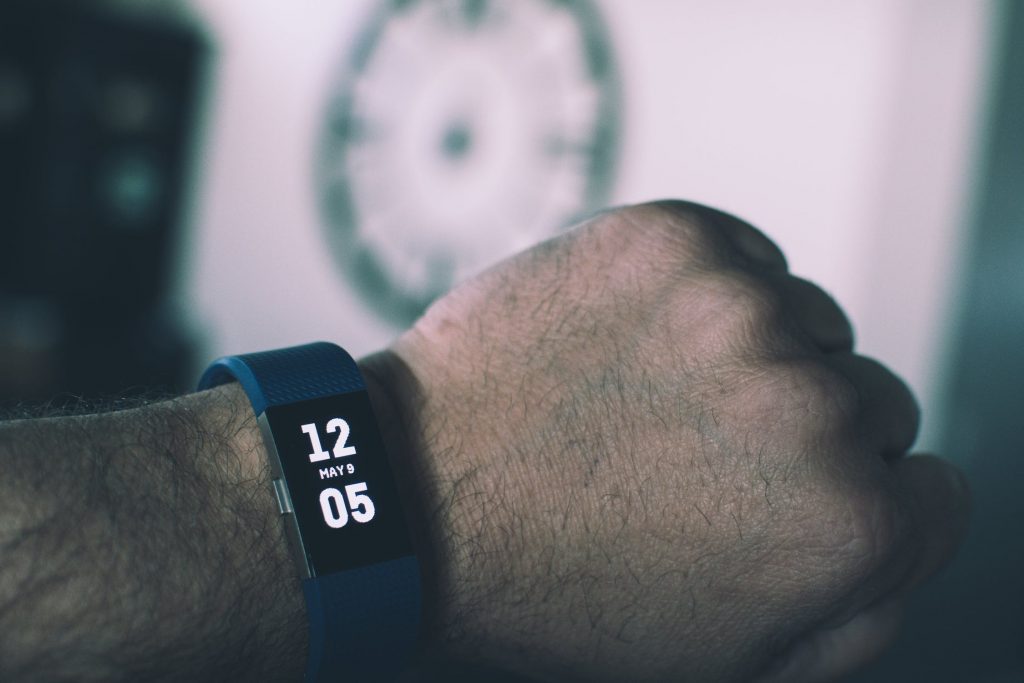FitBits are a great bit of gear to have in everyday life. When it comes to hiking though some of the models aren’t up to the challenge. The best FitBit for hiking is simply put:
or if you want to save some money the older model works great too:
What Makes The FitBit Charge The Best FitBit for Hiking?
7 Day Battery
One of the most important features of the FitBit Charge 4 is the fact it has a 7 day battery. This means you don’t have to worry about charging it on trail.
Within a 7 day period you’ll pretty much always come across a town unless you’re doing some extremely remote hiking.
So you don’t have to worry about the battery on trail which is a big factor.
In the unlikely even you do run out of battery on trail, you can charge it pretty quick with an external battery.
It’s important to note, if you want to get to the full 7 days out of the FitBit Charge then you shouldn’t use the in-built GPS
If you plan on using regularly using GPS when hiking there are better options (see below).
Silent Alarm
We’ve all been at a campsite or in a shelter/hut when someone’s alarm goes off at 6am when you had planned to sleep until 7am.
No one wants to be that guy and with the Fitbit Charge you don’t have to worry about this. The alarms on FitBit are silent alarms, they vibrate on your wrist. Meaning you’re the only one it will wake up.
You might wake others up by fumbling about packing up your gear but your Charge alarm won’t be the reason.
Simple Functionality
It’s got a watch which automatically turns on when it detects you’re looking at it (this also lights-up in the dark which is super-handy).
It has a heart monitor and a pedometer which you can pair with your smartphone via bluetooth. Likewise, with your calories burned, distance walked and ‘active’ minutes.
These are simple features but are great to track when hiking. You can review your speed or your heart rate and fitness levels over time.
Sleep Tracker
One of the most important things when out hiking is getting a good night sleep. The FitBit Charge automatically tracks your sleep. It monitors your periods of REM and restlessness and gives you a sleep a score.
This can be great for when testing out new gear to see what is working best for you. Maybe you sleep much better on inflatable mattress than a closed foam cell pad, well with your FitBit now you have the data to back it up.
The Cons?
Have the bring the specific Fitbit carger cable

A standard USB-C or USB-A charger cable won’t work for the Charge, which means you’ll have bring their own cable with you (pictured) if you plan to recharge your fitbit when out on a longer hike or thru-hike.
This is a bit of a pain but the tiny bit of extra weight is worth it, in my opinion. The data and features you can gain with your FitBit more than make up for it.
Don’t Get A FitBit For The GPS
A FitBit is a not a GPS watch.
A FitBit is a good lightweight option for a fitness tracking/watch but if you want something more active with GPS tracking then you should check out the Garmin Instinct Watch.
This is a more heavy duty watch with a great GPS option.
I personally just use my phone (on airplane mode) for my GPS and the FitBit to track my fitness/sleep etc. However, the Garmin Instinct is a great option if you want a reliable GPS option other than your phone.
You could also check some PLBs (Personal Locator Beacons) like the Garmin Inreach Mini. These are more expensive options but they come with added durability and reliability.
Track Your Hikes and Your Progress
Wearing a FitBit can really augment and improve your hiking progress. If you’re doing something like a thru-hike, or training for one, you’ll be able to automatically track your progress and look back on every step.
There are numerous FitBit models, most aren’t up to the task of a long distance hike but the FitBIt Charge 4 or Charge 3 is a good addition to any potential long distance hikers gear list.
